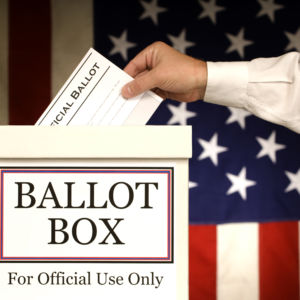The federal agency tasked with resolving labor dispute cases was urged Monday to require union recertification votes to prove workplaces they represent still want them.
The National Labor Relations Board (NLRB) is responsible for enforcing federal labor law and resolving unfair labor practice complaints. President Donald Trump was able to regain his majority on the five-member board April 11 when John Ring had his nomination approved. The Senate narrowly voted along party lines to confirm him.
The National Right to Work Foundation (NRTW) is now asking the newly restored board to make two major changes. The NLRB should, argues the group, require unions to regularly recertify to show that they still have majority support. The NRTW also asks that the board rescind a policy that critics have dubbed the “ambush election” rule.
The NRTW argues that requiring unions to regularly recertify will help ensure employees still want them to continue being their exclusive representative. NLRB data shows that 94 percent of workers currently under union monopoly representation have never even voted on their union in a secret ballot election.
The NLRB opened up public comments earlier this year on whether it should end or change the ambush election rule. The NRTW argued that the rule should be scrapped in comments it submitted to the board – while also asking that the union recertification requirement be implemented.
“The Obama NLRB’s election rules made union organizing campaigns more one-sided and stifled the rights of employees opposed to unionization,” NRTW President Mark Mix said in a statement. “However, simply reverting to the pre-Obama NLRB rules would still leave many workers – whose rights the NLRB is supposed to protect – trapped in unions they oppose and that a majority of their coworkers have never voted for.”
The NLRB wields a considerable amount of influence in its role resolving labor disputes. It has been able to alter rules and regulations by changing how it interrupts the law when ruling on cases. Former President Barack Obama oversaw a board which critics have called overly activist – including its implementation of the ambush election rule.
The ambush election rule shortens the amount of time union elections are held. The Obama-era NLRB argued that the changes were intended to better streamline the process. Those opposed have contested it allows unions to organize a workplace before employees really have the chance to understand everything.
“If union officials are going to be granted monopoly powers over every employee in a workplace, they should be required to regularly recertify that at least a majority actually want them there,” Mix said. “The Labor Board should reform the one-sided NLRB election system that lets union organizers call for a unionization vote of nonunion employees at any time, but forces workers to wait months or even years to file to force a secret ballot vote on an incumbent union.”
The NRTW also call on the board to remove bureaucratic barriers not mandated by federal law that prevent workers from holding a decertification vote. The group points to unions being able to file blocking charges to stop workers from holding decertification votes as one example.
The Obama administration tackled issues including union elections, independent contracting, franchising, overtime, and safety standards. The reforms it imposed were intended to help workers. The administration encouraged unionization and imposed stricter rules on businesses with the aim of better-protecting workers against abusive employers.
Trump has also done a lot with the intent of helping workers – but in a very different way. He has fought for tax reform and for fewer regulations to lessen the burden job creators face so they can invest more time and money into their employees and growing their business.
Wisconsin Gov. Scott Walker became a nationally recognized figure in 2011 by pursuing a series of controversial labor reforms known as Act 10. The law allowed state employees to choose whether they wanted to pay union dues. It also required public unions to hold a renewal vote every couple of years to determine if workers still wanted them.
The Employee Rights Act (ERA) is a proposed bill which includes a provision requiring union recertification votes. The legislation primarily changes union elections, and how dues payments can be taken. It requires secret ballot elections, protects personal information during unionizing drives, and requires unions to undergo recertification votes.
President Trump did manage to gain a majority vote on the board for a short time after a confirmation vote Sept. 25. The NLRB did manage to accomplish a few big goals before it was split again in December. Its decision to rollback an updated version of the joint-employer standard became one of the more critical until it was later vacated Feb. 26 over a possible conflict of interest involving board member William Emanuel.

